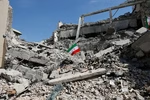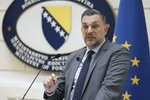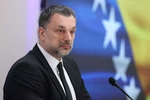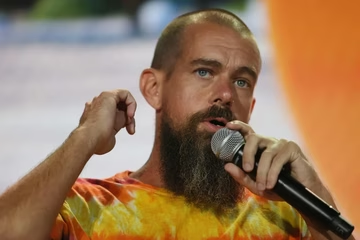ICMP's Bomberger: Cooperation in the region a 'remarkable success story'

More than 40,000 persons had gone missing on the territory of former Yugoslavia during the 1991-99 period and so far more than 70 percent of the remains have been discovered owing to the joint efforts of local authorities and the International Commission on Missing Persons, with strong participation of the families.
Oglas
There are still over 7,000 persons missing in Bosnia and Herzegovina, 11,000 in total regionally.
ICMP Director-General Kathryne Bomberger told N1 that ensuring the cooperation between the regional governments in finding over 40 thousand people who went missing during the conflict was important from the beginning.
"In fact it is ICMP's mandate to ensure the cooperation of governments," she said in an interview with N1's Ika Ferrer Gotic, explaining the institution's role in the search for the missing persons in the former Yugoslavia.
According to her, this cooperation was a "remarkable success story."
Asked to comment on the ongoing tensions and rhetoric about another war, and how should people feel about that, Bomberger said there is factual information about what had happened here and that there should be no more discussion about this.
She also talked about the migrant crisis and the issue of missing migrant children.
"States are obligated under the law to conduct investigations into missing persons cases regardless of whether the person is a citizen or non-citizen, regardless of their race, gender, sexual preference... States are obligated to do that under the law," said the ICMP chief, adding that this is what the ICMP does - reminding the states of their obligations, whether it is in the Western Balkans or elsewhere.
Watch the entire interview in the video below:
video-cdn src="https://best-vod.umn.cdn.united.cloud/stream?asset=webenglishicmpinterviewikf20211208192921199-n1info-ba&stream=hp1400&t=0&player=m3u8v&sp=n1info&u=n1info&p=n1Sh4redSecre7iNf0" video-id="4664918"]
Kakvo je tvoje mišljenje o ovome?
Učestvuj u diskusiji ili pročitaj komentare
Oglas
Kakvo je tvoje mišljenje o ovome?
Učestvuj u diskusiji ili pročitaj komentare
Oglas
NAJČITANIJE
Oglas
Oglas
Najnovije
Oglas
Oglas





 Srbija
Srbija
 Hrvatska
Hrvatska
 Slovenija
Slovenija



























































